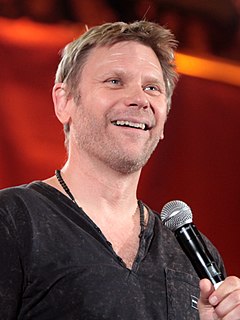A Quote by Immanuel Kant
The enjoyment of power inevitably corrupts the judgment of reason, and perverts its liberty.
Related Quotes
What is true is that the idea of power corrupts. Power corrupts most rapidly those who believe in it, and it is they who will want it most. Obviously, our democratic system tends to give power to those who hunger for it and gives every opportunity to those who don't want power to avoid getting it. Not a very satisfactory arrangement if power corrupts those who believe in it and want it.
It has often been said that power corrupts. But it is perhaps equally important to realize that weakness, too, corrupts. Power corrupts the few, while weakness corrupts the many. Hatred, malice, rudeness, intolerance, and suspicion are the faults of weakness. The resentment of the weak does not spring from any injustice done to them but from their sense of inadequacy and impotence. We cannot win the weak by sharing our wealth with them. They feel our generosity as oppression.
We're taught Lord Acton's axiom: all power corrupts, absolute power corrupts absolutely. I believed that when I started these books, but I don't believe it's always true any more. Power doesn't always corrupt. Power can cleanse. What I believe is always true about power is that power always reveals.
If to break loose from the bounds of reason, and to want that restraint of examination and judgment which keeps us from choosing or doing the worst, be liberty, true liberty, madmen and fools are the only freemen: but yet, I think, nobody would choose to be mad for the sake of such liberty, but he that is mad already.
The mistakes (of leaders) are amplified by the numbers who follow them without question. Charismatic leaders tend to build up followings, power structures and these power structures tend to be taken over by people who are corruptible. I don't think that the old saw about 'power corrupts and absolute power corrupts absolutely' is accurate: I think power attracts the corruptible.
Liberty is not a means to a higher political end. It is itself the highest political end...liberty is the only object which benefits all alike, and provokes no sincere opposition...The danger is not that a particular class is unfit to govern. ~ Every class is unfit to govern ... Power tends to corrupt, and absolute power corrupts absolutely. Great men are almost always bad men.








































